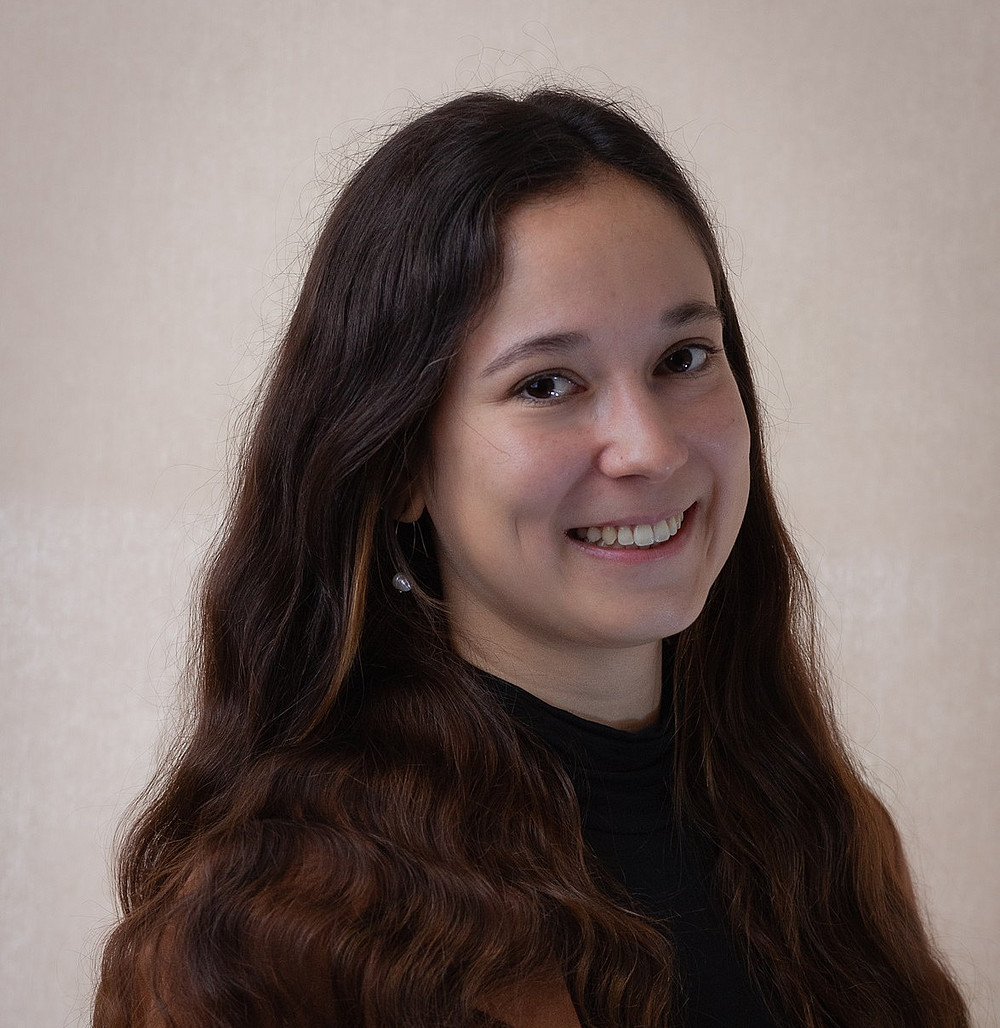Translated art
Christina Mariella Fritz researches translational processes in the visual arts at the Institute for Theoretical and Applied Translation Studies.
Two hearts beat in Christina Fritz's chest: one for translation studies and one for art history. This makes it all the more fortunate that she is able to focus on both areas in her dissertation project. At the Institute for Theoretical and Applied Translation Studies, Fritz is writing a dissertation in the research area "Translation, History and Politics" on the translational process effect on the art of politically persecuted people during the National Socialist era. The research interest arose from the previous lack of interest in translation studies in including visual artists alongside poets and writers under the term artist, as well as the fact that there was little interest in the political aspects of art production and migration research in art history.

Word and image
Fritz has long been fascinated by both languages and art. The two interests were already intertwined in her school days, which is why a double degree was intended to provide clarity, but instead of deciding on one subject area, she immersed herself further and further in both subjects and finally found a connection with the research area she is working on.
Translational process effect
Within the research field of translation history, Fritz works on processes that form the basis of translator studies. Media such as images, literature, photography and the like are used as sources to approach the figure of the translator, whose works are then used as evidence of a translational process that has taken place. Fritz already chose this interdisciplinary approach in her master's thesis and wrote about Die Darstellung des Hl. Hieronymus als Übersetzer in der Malerei (Vienna, 2021) . In this work on the patron saint of translators, the analysis of painterly-artistic representations is seen as a new possibility - in addition to the purely linguistic-textual approaches used so far - within translation studies to obtain information about a translating person.
This translator-focused approach is now the starting point for Christina Fritz's research in Graz. She deals with visual artists who had to leave Germany or Austria at the beginning of the Second World War due to their religious or political background, for example, who took their artistic style with them into exile, adapted it there and thus brought about a translational process. The concept of translation is defined more broadly and not only viewed from a translation studies perspective, but a look is also taken at how other humanities disciplines define (cultural) translation in order to discuss and highlight similarities and differences in the definitions of the term. The artworks are used in the dissertation project with the working title Die translatorische Prozesswirkung auf Kunst politisch Verfolgter. Exile Art during the National Socialist Era. as material evidence to highlight interactions and process characteristics. The artists she deals with include Georg Grosz, Lore Ottilie Krüger and Heinz Worner.
Christina Mariella Fritz completed her Bachelor's degree in Transcultural Communication and Art History in Graz and her Master's degree in Translation and Art History in Vienna. After working as a research assistant and lecturer at the New Design University, St. Pölten, she returned to the University of Graz in 2023. Since October, she has been working at the Department of Translation Studies as an assistent professor, where she is researching her dissertation project under the supervision of Pekka Kujamäki.